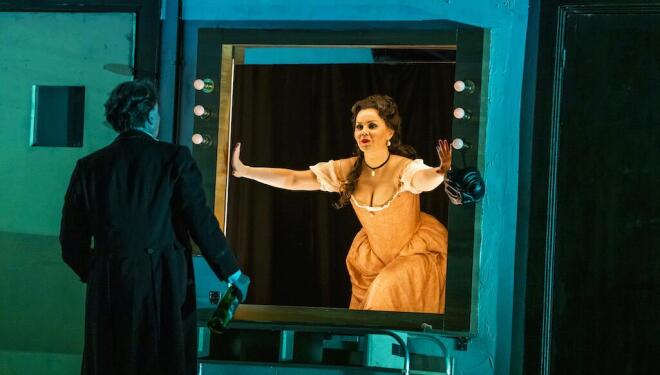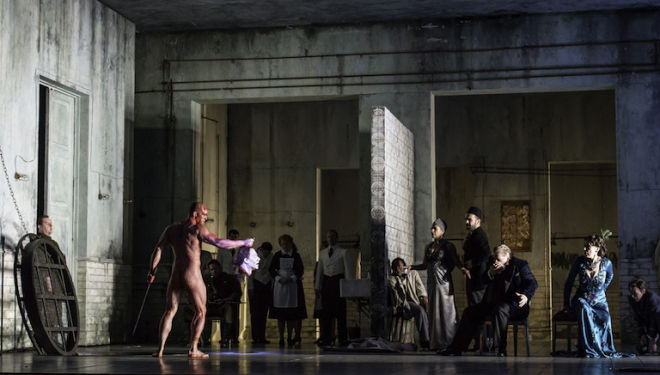
Rossini's 1823 opera is noted for its big ornate numbers and for a baffling number of characters whose names begin with A. One, the prince Assur, was to have been played by the Italian Ildebrando d'Arcangelo. When he was indisposed his role was taken by another Italian, Michele Pertusi. But by the interval he too was out, and in came Assur No 3, Mirco Palazzi, stepping in at minutes' notice. And because we all love a hero, and also because he sang very well, he received a huge ovation.
So too did Daniella Barcellona in a 'trouser role', playing Arsace, the young man with whom Semiramide is besotted, and whom she wants to inherit the crown. Semiramide is a tyrannical queen who has already poisoned her husband; she is also Arsace's mother, but does not recognise him, because this is an opera. Arsace is in love with Azema. We are in Assyria.
So far, so confusing, but here comes another A – director David Alden, who has overcomplicated the whole affair with distracting actors, a fidgetty set (design by Paul Steinberg) and meaningless religious noodling. This Assyria is a modern land with medieval practices. It is a place of big statement rooms with (wobbling) pictures of the first family, steps to trip up, platforms to get in the way, doors to slam close (and then pop open, leaving one character literally pushing at an open door), and men who go to war with axes (they need to know, the enemy will have guns...)
In short, the production is a mess, and a disappointment, since it is the first at Covent Garden in modern times. But it features superlative singing from DiDonato and Barcellona, and other impressive performances. American tenor Lawrence Brownlee (male singer of the year at the International Opera Awards) is terrific as the Indian king Idreno. Jacquelyn Stucker (in annoying costume of the year by designer Buki Shiff) is a hard-working Azema, but it was plain silly not to let bass Simon Shibambu be visible as king Nino, back from the dead for revenge, but to use a mouthing actor on-stage.
Semiramide is the latest in a long line of operas in which singers triumph despite the production, not because of it. It's worth it for DiDonato alone, and for Antonio Pappano's characteristically illuminating conducting, but make sure you do your patience exercises before you go.
| What | Rossini's Semiramide review , Royal Opera House |
| Where | Royal Opera House, Bow Street, Covent Garden, London, WC2E 9DD | MAP |
| Nearest tube | Covent Garden (underground) |
| When |
19 Nov 17 – 16 Dec 17, eight performances, one at 3PM |
| Price | £12 - £245 |
| Website | Click here for more information and booking |






